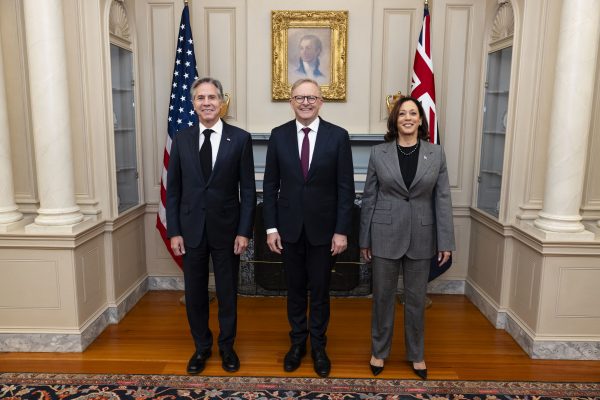“To me, the most beautiful word in the dictionary is ‘tariff’,” Donald Trump told an audience at the Economic Club of Chicago last week. Judging from the thunderous applause that followed, many in the business community believe that Trump’s plan for comprehensive tariffs will help their bottom lines.
At the same time, Trump and his allies insist that tariffs will aid American workers. But tariffs cannot raise worker incomes and business profits simultaneously because they undermine the US economy’s efficiency, imposing costs on consumers and producers that compress total national income. A more likely outcome is that workers and business owners alike will suffer real economic pain.
Those who favour tariffs regard international trade as a main cause of US manufacturing job losses and wage stagnation for workers lacking university degrees. According to this view, cheap imports from low-wage countries like China have eliminated US jobs producing similar goods. At the same time, US businesses have moved production abroad in search of cheaper labour.
The truth is more complicated, with new technology playing a more important role than trade. But tariff proponents nevertheless argue that restricting imports can revive US manufacturing and boost demand for middle-skilled workers along with their wages.
Economic theory – namely, the famous Stolper-Samuelson theorem of international trade – suggests that protectionist tariffs can raise real wages in a country like the United States, which imports goods embodying cheaper foreign labour. Economic theory, however, also shows that a tariff causes total national income and the return to capital – real business profits – to decline. The business leaders who applauded Trump in Chicago cannot achieve higher profits if workers are made better off while the total economic pie shrinks.
The outlook gets even worse when one realises that Trump’s proposed comprehensive tariffs, like his tariffs in 2018-19, would apply to a wide range of intermediate goods (mainly parts used in producing other more advanced products), raising their US prices. Intermediate goods make up well over half of all US merchandise imports, so tariffs on items like steel and aluminium are unavoidable if Trump’s goal is to revive manufacturing.

 By South China Morning Post | Created at 2024-10-23 15:25:38 | Updated at 2024-10-23 17:59:40
2 hours ago
By South China Morning Post | Created at 2024-10-23 15:25:38 | Updated at 2024-10-23 17:59:40
2 hours ago



